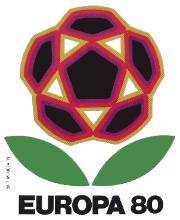Tournament Overview

The sixth edition of the UEFA European Championship saw the tournament awarded to Italy for the second time, twelve years after they had hosted the event in 1968. The number of teams was also expanded for the first time since the tournament’s inception, with eight finalists being divided into two groups of four.
Like in the FIFA World Cup in Argentina two years earlier there was no semi-final stage, with the winners of each four-team group progressing to the final and the two runners-up playing each other for third place. The increase in the number of participants increased the number of tournament matches from four to fourteen. The games were played in just four stadiums across Italy, and produced a return of just twenty-seven goals at an average of 1.93 a game – less than half the ratio achieved in Yugoslavia four years earlier.
As a spectacle, the tournament bordered on the depressing. As well as the low scoring rate, many of the matches that did not involve the hosts were played in delapidated old stadiums that were half-empty – even the attendance at the final was disappointing, with more than thirty thousand seats unsold. The one positive thing was that the tournament was won by the best team, a German squad that boasted a number of up and coming young players who would make their names throughout the coming decade.
Qualifying Campaign and pre-tournament build-up
For the third tournament in succession Germany qualified for the finals by going unbeaten, overcoming more unspectacular opposition in the form of Malta (again), Turkey and Wales. After a start that could only be described as ordinary – goalless draws in Malta and Turkey – Jupp Derwall’s side strung together a run of four straight wins that took them to the finals, scoring seventeen goals and conceding only one.
With there no longer being a two-legged playoff stage, there was enough time for friendly fixtures to be arranged prior to the start of the final tournament – Germany lined up two friendlies against Austria and Poland, and extended their winning run to six courtesy of a single-goal win over the Austrians and a far more impressive 3-1 result against the Poles.
Germany’s Tournament in brief
Germany came into the finals of the 1980 European Championship on the back of an unbeaten fifteen game run stretching back to 1978, and despite having a young and developing team were among the favourites to lift the title in Italy. The Mannschaft’s quest to regain the trophy they lost in 1976 saw them being placed in a tough-looking group containing the side that had defeated them in the final in Belgrade four years earlier – Czechoslovakia – as well as World Cup runners-up the Netherlands and tournament debutants Greece.
Having beaten the defending champions in a tight encounter Jupp Derwall’s side beat the Dutch 3-2 in what was perhaps the most exciting game of the tournament, although they blew a 3-0 lead in the process. Needing only a point from their final game against the winless Greeks to progress to their third successive final, this was duly achieved with a dour goalless draw.
The final in Rome saw the Mannschaft take on surprise finalists Belgium, who had deservedly finished top of a group containing England, Spain and hosts Italy. In what was their first major tournament final, the Belgians were not at all overawed by their more illustrious opponents as they held they own for a lot of the game. However once again Germany were able to deliver the telling blow when it mattered: with the scores locked at 1-1 with two minutes remaining and the game surely heading for extra time, Hamburg’s burly centre-foward Horst Hrubesch stole into the box to nod in the winner – and with it secure the Mannschaft’s second European title.
v Czechoslovakia, First Phase Group A, Roma, 11.06.1980 View Report »
v The Netherlands, First Phase Group A, Napoli, 14.06.1980 View Report »
v Greece, First Phase Group A, Torino, 17.06.1980 View Report »
v Belgium, Final, Roma, 22.06.1980 View Report »
